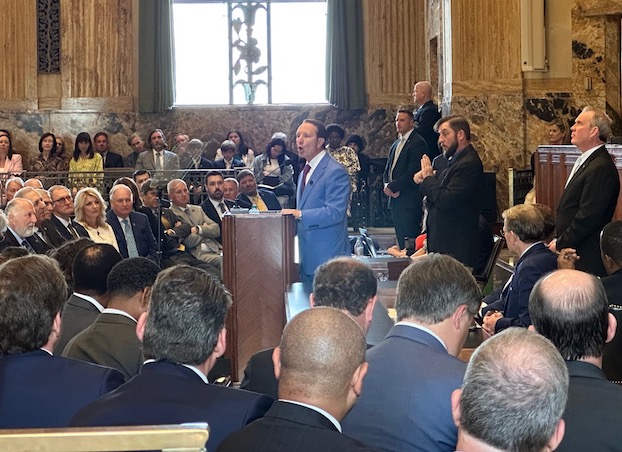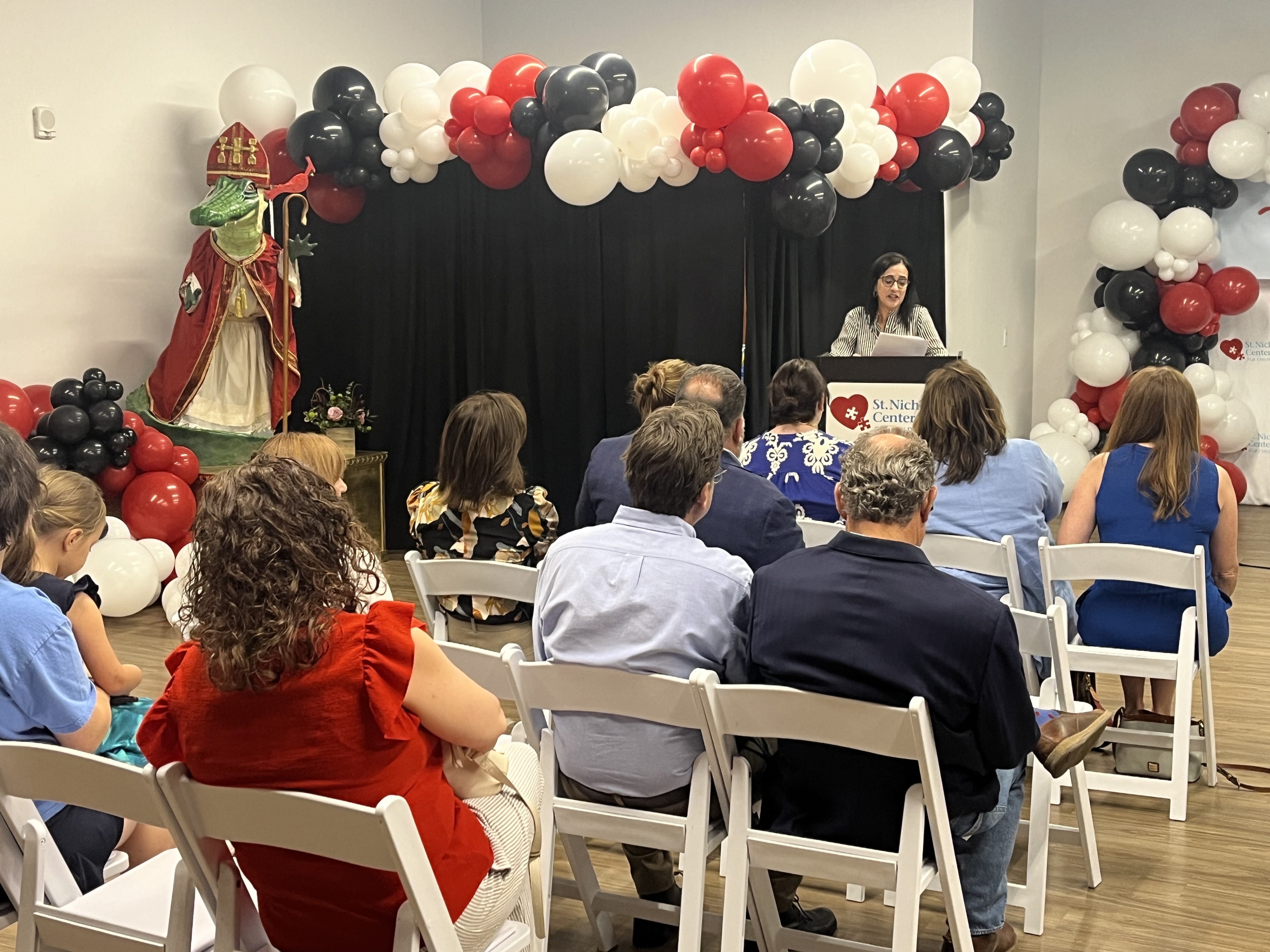Lawmakers approve budget and teacher pay push as session wraps up
Published 5:12 pm Thursday, June 12, 2025

- Gov. Jeff Landry had mixed success in the spring legislative session. (Quinn Marceaux / LSU Manship School News Service)
By Anna Puleo | LSU Manship School News Service
BATON ROUGE — The Louisiana House voted 98-1 Thursday to give final legislative approval to $53.5 billion budget package for the upcoming fiscal year without objecting to any of the major changes that the Senate had made earlier this week.
With three hours to go in the session, lawmakers also agreed to ask voters to approve a constitutional amendment in a new attempt to fund permanent salary raises for K-12 public school teachers and support staff.
Voters had rejected a long and complicated amendment in March that could have provided funding for permanent raises. Under the latest plan, voter approval could lead to salary increases of $2,250 for teachers and $1,225 for staff members.
The proposed constitutional amendment would dissolve three state education trust funds and used $2 billion to pay down debt on teacher retirement plans. That would save parishes enough money to provide the raises.
While waiting to see if voters approve the amendment, the state will pay stipends of $2,000 to teachers and $1,000 to support staff at K-12 schools for a third year in a row.
The state budget and the new teacher pay plan both passed on the final day of a legislative session that also saw significant changes in car insurance regulation designed to lower some of the highest annual premiums in the nation.
Other high-profile legislation stalled during the session. A bill to reinforce President Donald Trump’s ban on diversity, equity and inclusion programs at public agencies and colleges failed after the Senate declined to take it up, even as similar bans gained traction in other Republican-
led states.
The bill had narrowly passed the House after a lengthy debate during which Black lawmakers called it “racially oppressive.”
Gov. Jeff Landry’s push to more than double funding for his LA GATOR private school voucher program also failed.
The House had approved the $93.5 million that Landry sought to sharply increase the number of families that could use public funds to send their children to private schools.
During the session, the Senate limited funding on the vouchers to $43.5 million, and the House acquiesced. That funding will allow students already enrolled in private schools under the similar program to stay there, but there will not be any money for new families to join, as Landry had envisioned.
Lawmakers approved another national conservative priority — the “Make America Healthy Again” efforts led by Trump and health secretary Robert F. Kennedy Jr. The bill bans ultra-processed ingredients, such as artificial dyes and synthetic additives, in meals served in schools that receive state funding, starting in the 2027-28 school year.
All bills that passed now go to Landry for his approval or veto. The budget bill would take effect on July 1. The governor has the power to veto individual items in it.
As part of the budget, lawmakers agreed to spend $1.2 billion in one-time money from the state’s Revenue Stabilization Trust Fund–which collects corporate and severance taxes — on transportation projects, economic development, water system upgrades, college maintenance and
criminal justice infrastructure.
They also approved using $1.1 billion in extra cash for short-term needs like infrastructure projects, debt payments and deposits into state savings accounts.
That total includes last year’s surplus, additional general fund dollars recognized by the state’s revenue forecasting panel, and unspent agency money, either because fewer people used certain programs or agencies found other ways to cover costs.
The stipends for the K-12 teachers and support workers will cost $199 million. The Senate also restored $30 million for high-dose tutoring programs that had been cut in the House’s version.
Legislative leaders were reluctant to expand spending in other areas, like for Landry’s signature voucher plan to pay for more students to go to private schools.
Some lawmakers are concerned that potential cuts in federal Medicaid spending and federal disaster-relief could force the state to absorb hundreds of millions in additional costs.
The House approved a resolution on Thursday by Appropriations Chair Jack McFarland, R-Jonesboro, urging Congress not to cut Medicaid funding in a way that would hurt the state.
Legislators from rural areas also expressed concern that expanding private school vouchers could eventually cut into support for public school district. Some lawmakers noted that the final level of spending on the LA GATOR program was not a cut but rather keeping funding flat.
“We always use the word cut,” Rep. Eric Tarver, R- Lake Charles, said. “When really we mean it just isn’t an increase.”
The Legislature also passed a supplemental spending bill for the current fiscal year with about $130 million, mostly in lawmakers’ earmarks for projects in their districts.
Taking steps to try to bring down auto insurance rates was another major focus during the session. Landry signed a package aimed at lowering premiums by limiting certain lawsuits and increasing oversight of insurers. However, on Wednesday, he vetoed Senate Bill 111, which would have restricted when policyholders can sue insurers for bad faith.
Landry said the bill risked making it easier for companies to deny claims, leaving policyholders with fewer options to challenge delays, especially after major disasters. Landry had said at the start of the session that he was seeking a balanced approach in trying to cut rates.
He also persuaded lawmakers to give the insurance commissioner more power to block companies from charging auto insurance rates that appeared excessive.





